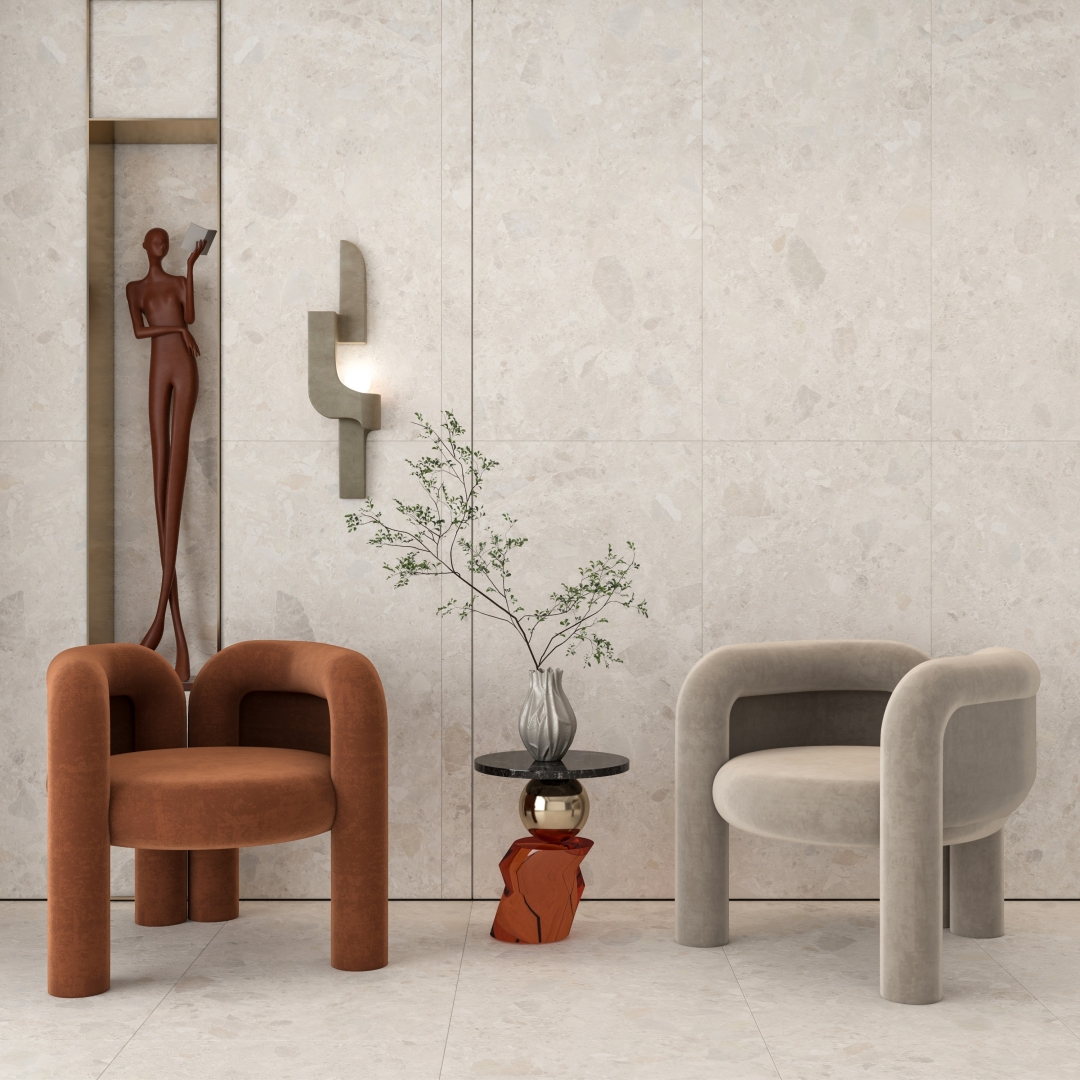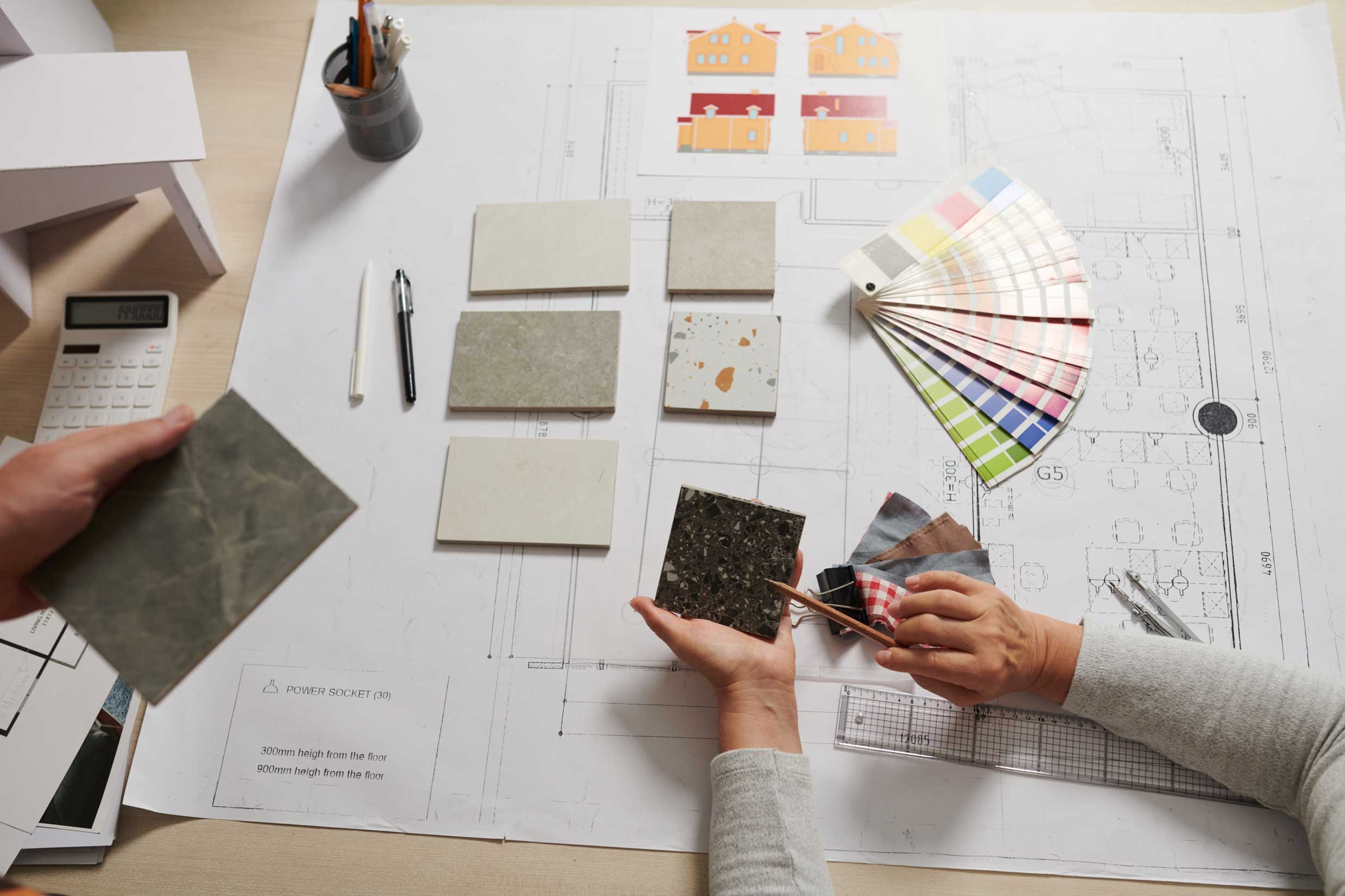Are you planning to revamp your home and consider adding some tiles? Finding the right tiles can be challenging. Factors such as price, size, texture, and durability all need to be considered before making a decision. To help you choose the perfect tiles for your home improvement project, here is a non-exhaustive list of aspects to consider.
Find inspiration
The inspiration you find will lead a lot of your journey in giving a tile makeover to your house. Explore the market, examine current trends, and tap into your imagination and creativity to define the type of setting and tiles you want for your home. Look for design ideas in home improvement magazines, online platforms, and social media to gather a variety of styles and options.
For additional guidance, be sure to check out our comprehensive 2024 tile and home design article. It offers insights into the latest trends and innovative ideas to help you find the perfect tiles for your project.
Define a budget
Once you’ve found inspiration and defined the space for your tiles, it’s time to consider your budget. Tile prices vary based on factors such as origin, size, coverage area, material, and design. Establishing a price range will help you determine which options are within your budget and which are not. This will guide you in making practical choices for your tile project.
The space
One of the key steps in your tile makeover project is to define the space you want to update. Whether it’s a pool, terrace floor, kitchen bench, splashback, or shower, the type of tile you need will vary. Each space requires specific tiles based on their intended use and the area they need to cover. For example, the tiles for a swimming pool will be different from those for a kitchen bench or an outdoor floor. Therefore, identifying the area and understanding its use—whether it will be exposed to water, heavy materials, or daily wear—will be crucial in determining the appropriate type of tile for your project.
Size
Once you have selected a few tile options and established your price range, the next crucial step is determining the size of the tiles you will use. Indeed, choosing the right tile size for your project is important as it can significantly impact the overall look of your space. Larger tiles can make a room appear more spacious, while plank or small mosaic tiles can add contrast and depth. Smaller tiles also offer more creative flexibility, allowing for mix-and-match designs that can enhance the visual interest of your space.

Material
Choosing the right material for your tiles is crucial to the success and longevity of your home improvement project. The material not only determines the durability and maintenance requirements but also impacts the aesthetic appeal and functionality of the space. For high-traffic areas, materials like porcelain or ceramic are ideal due to their strength and resistance to wear. In moisture-prone areas, such as bathrooms and kitchens, non-porous materials like glass or glazed tiles are essential to prevent water damage and stains. By selecting the appropriate material, you ensure your tiles will not only enhance the beauty of your home but also stand up to the demands of daily life.
Resistance & lifespan
Another crucial factor in choosing tiles is their durability and resistance to everyday wear and tear, especially if they will be exposed to frequent use. Whether the tiles are for a swimming pool, a floor, a kitchen or a bathroom backsplash, they need to withstand various hazards and daily challenges. These may include exposure to water, earth movement, sharp knives, hot plates, and heavy weights.
Additionally, you’ll want your tiles to resist discolouration from the sun and other external factors that could damage their colour or fitting. Tiles should also be able to withstand heat and temperature fluctuations to prevent damage to their settings and, ultimately, your home.
Ensuring the durability and resistance of your tiles is key to determining their lifespan and making an informed decision on the best option for your needs.
Learn more about different floor tiles materials and durability here.
Key features
Along with ensuring your tiles can withstand everyday wear, it’s important to choose the right features and finishes to prevent accidents and damage. For instance, selecting anti-slip tiles for floors can help prevent slipping on wet surfaces. Additionally, opting for heat-resistant tiles for your kitchen bench and other areas ensures you can place hot items on them without worrying about the tiles cracking or breaking.

Maintenance
Last but not least, considering the maintenance level required for your chosen tiles is crucial. Different types of tiles have varying maintenance needs to ensure their longevity. Understanding these requirements before installation will help you avoid unpleasant surprises after a few weeks or months of use. Make sure to ask about the upkeep necessary for the tiles you’re considering to make an informed decision.
Installation
Now that you’ve chosen your tiles, it’s time to install them. While professional installation is an option, if you’re handy or enjoy a challenge, consider a DIY approach. This decision can influence the type of tile you select, as the installation process varies between tile types. Some tiles are relatively easy to install, while others require more care, precision, and expertise. Therefore, we recommend seeking advice and opinions on the feasibility of DIY installation for the specific tiles you’ve chosen.
At Ceramic Tile Supplies, we span decades of experience in the tile industry. Our team is passionate and available to guide you through every step of your project to ensure you choose the right tiles for your property.

